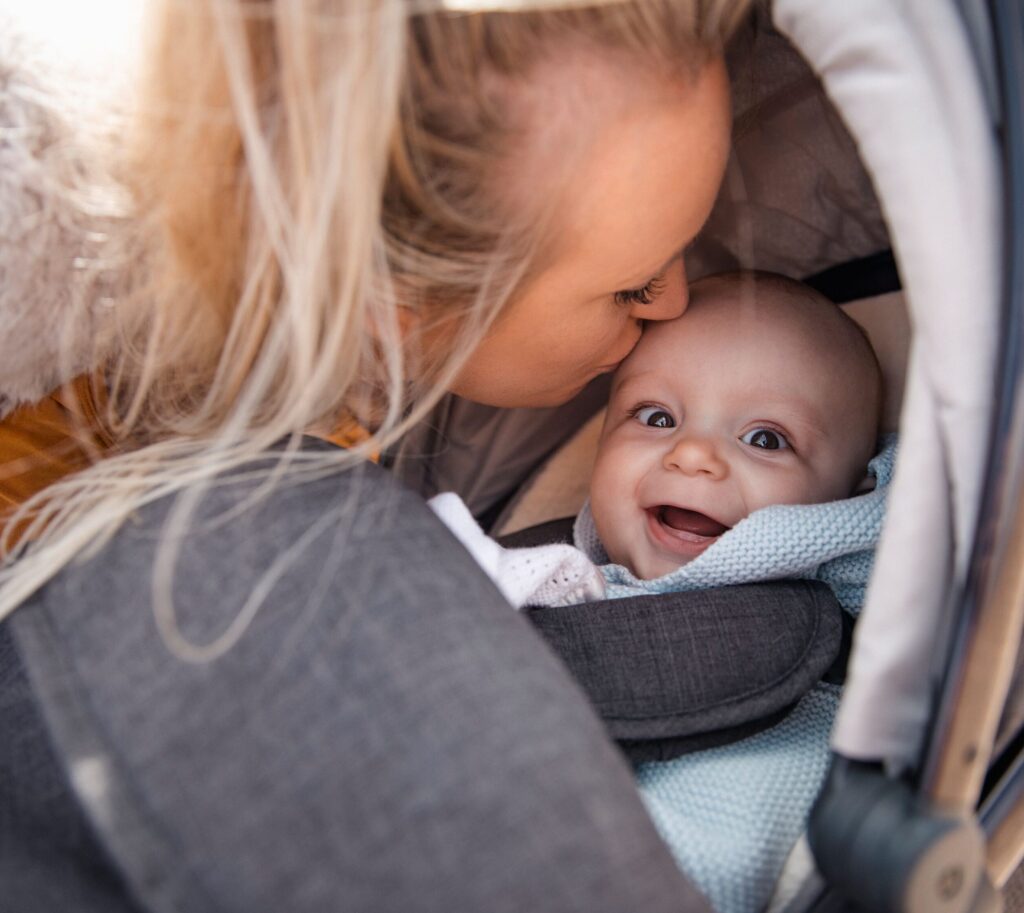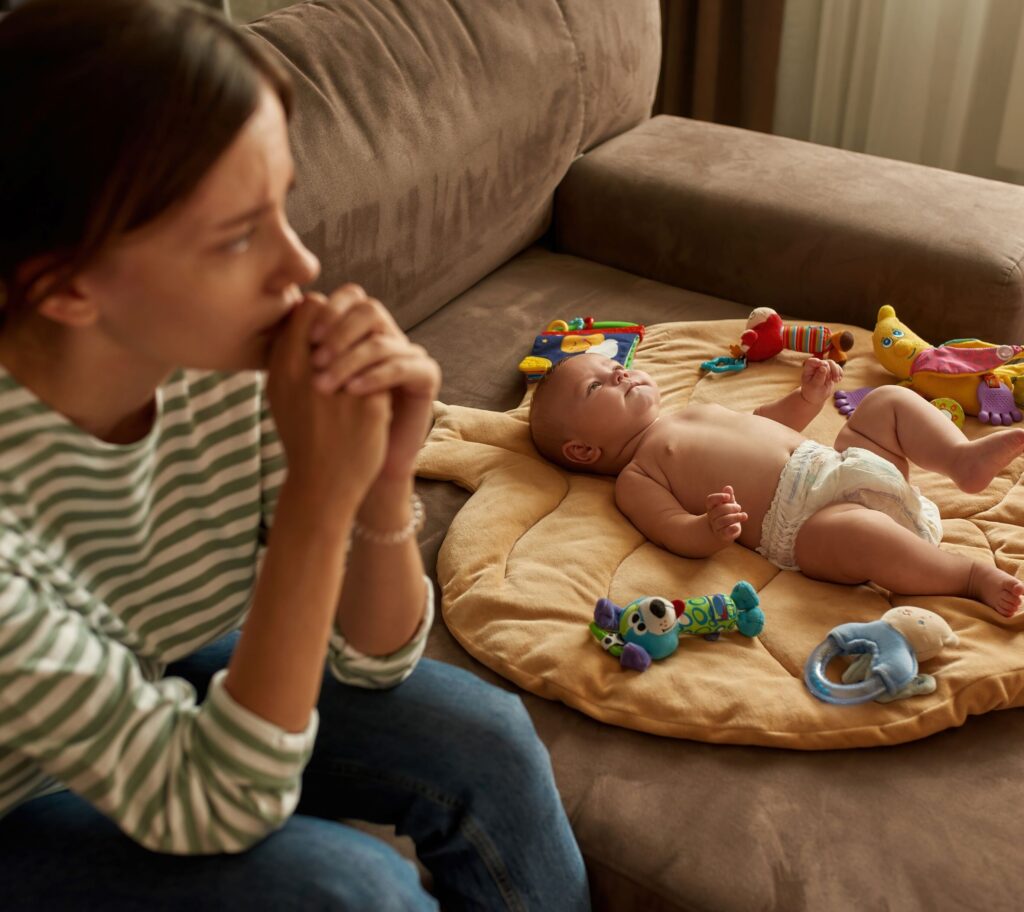Becoming a parent for the first time is equal parts exciting and daunting. You’ll be faced with lots of unknowns, and lots of well-meaning advice from those around you. But what do parents wish they’d known when they first became a parent?
We asked more than 20 parents to share their tips, thoughts and experiences, to help first-time parents navigate this amazing, scary time as easily as possible.
Every birth and parenting journey is different
Something that the vast majority of our parents agreed on is that every birth and parenting journey is different. “There’s no right or wrong way to parent,” said Anita, who has a four-year-old daughter and a two-year-old son. “What works for one family may be completely different from what works for another family. Do what works for your family and don’t compare yourself to others.” Father of two, Ant, said, “It’s easy to judge yourself against other parents but each family and their challenges are different.”
This also means that what works for one family might not work for another. “Co-sleep or don’t co-sleep, baby-led weaning or another approach – you can have all these grand plans to do things perfectly,” said Wendy, mum of a 10-year-old. “Ultimately, your baby is unique and some things just might not work. Do what works for you and your baby, not what the internet or even your friends are saying is best.”
You can't learn it all from a book, or even from other people's experiences. That was difficult for me to accept at first as I like to research and plan!
Remembering that everyone has different experiences of birth and parenting can be tricky when lots of people are telling you different things – particularly if they’re focusing on things that might feel more negative. “When I was pregnant everyone was so happy at first, but as time went on people made more negative comments like ‘you’ll never sleep, wash, have money…’,” explained Kirsty, mum of a two-year-old.
“Although having a newborn can be full on, it was a much better experience than I had expected based on other people’s comments. I wish I had known how to shut out other people’s comments about pregnancy and parenthood, because although it can be a challenge sometimes, it’s wonderful more often than not.”
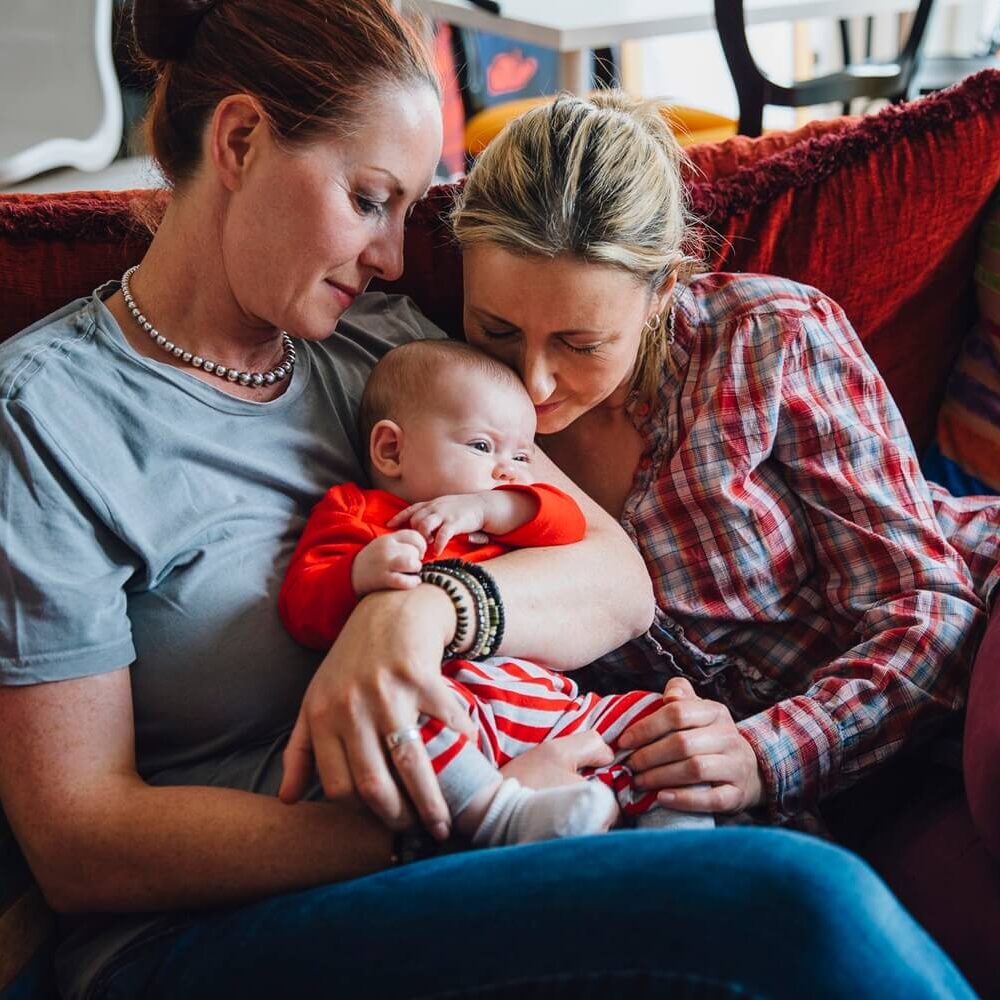
Breastfeeding
One aspect of parenting that can differ so much for different families and cause new parents a lot of stress is breastfeeding. Christina, mum to a seven-month-old told us, “The biggest surprise to me as a first-time mum was that breastfeeding didn’t come naturally. I wasn’t aware that not all mums produce milk and not all babies want to latch on. I’ve always assumed that breastfeeding is the most natural, easy thing in the world but if, like me, you’re unable to breastfeed, it can cause an overwhelming feeling of failure on your first obstacle as a parent.”
For parents who do breastfeed, you may have a feeling of sharing your body. Laura, who’s mum to one teenager, explained that, for the time she breastfed, she had the feeling of her body not belonging to her – but also that she was fine with that.
If you need any breastfeeding support, see the following:
There’s no instruction manual
Children don’t come with an instruction manual, and that’s one of the things that makes becoming a parent so tricky. Father of two, Ant, said becoming a parent “is the hardest, but the most rewarding thing you’ll ever do in your life.”
One parent stressed the importance of learning from others where you can – while bearing in mind what we covered above, that all families are on different journeys. “Share your knowledge, ideas and insights about parenting – it’s not a competition and we can all learn from each other.”
It’s also important not to be too hard on yourself if advice doesn’t work for you and your family. The sheer volume of different information that’s available can be overwhelming, and it can also make it easy to set overly high expectations for yourself when you’re preparing for your new arrival. One parent told us, “Although the advice is good, it doesn’t always work for you or your baby, so that shouldn’t make you feel bad, or that you’re doing anything wrong. It’s okay not to breast feed, it’s okay to use a dummy. Just do what works.”
Christina added: “Everyone told me not to read baby books as they frequently contradict themselves. But I didn’t expect the advice from midwives in the hospital to be contradictory as well. I found the long-standing midwives would give advice based on experience where the newly-qualified midwives would give advice based on textbooks. In reality, no two babies are the same and they definitely don’t all have textbook traits.”
If you’re concerned by any aspect of your baby's health or care, don’t be afraid to ask advice from parents, experienced friends or healthcare professionals, even if it seems very trivial. No one will criticise you for being a worried first-time parent.
Here are some quick tips from parents Laura and Christina:
- Toilets: You can use accessible toilets – there’s no need to struggle for space in a single cubicle. Many places also have baby changing facilities, so it’s often worth doing your research before you head out so you know where to go.
- Nappies: Modern reusable nappies are very easy to use and wash (if you have a washing machine), and might help you toilet-train children quicker – plus you can sell them when you no longer need them. Don’t be afraid to use disposables for newborns if you need to, though, as you have so much to do at that point.
- Clothing: Newborns tend to be in babygrows most of the time due to comfort and convenience, so don’t buy lots of outfits for 0-3 months. And stock up on babygrows – you’ll likely need to change your baby’s outfit more times than you expect, due to throw ups and blow outs.
- Visitors: Accommodating visitors outside your immediate family puts additional pressure on new parents. As much as your friends and coworkers will want to meet your baby, try not to feel rushed or obligated to have them over. The newborn stage is a very special bonding and adjusting time for yourself and your partner, if you have one, and it’s over fast.
Everything is a phase in all its wonder and despair. It all passes, to be replaced by new challenges, joy and trepidation, so sit tight and trust in what you are doing!
Trust your instincts
Linked to the idea that children don’t come with an instruction manual is the fact that, as a new parent, it can be hard to trust your instincts. Christina said, “I took on board everything I was told due to lack of experience. If I was a first-time parent again, I would trust my instincts over advice – although that’s easy to say seven months into motherhood!”
This is exactly what the majority of our parents said – trust your instincts. One parent suggested it can be best to “try to quieten the noise around what you ‘should’ be doing – especially around feeding and sleep!” The reality is that well-meaning people can sometimes share out of date or biased advice based on their own beliefs and feelings, so while it’s definitely worth listening to others who have been parents for longer than you, they won’t always have the answers.
“No amount of preparation gets you ready for that first night when you bring the baby home, and you’re on your own as parents,” said father of one, James. “Understanding and appreciating you don’t know everything is important, but so is knowing when to trust your own instincts and follow your gut on the right thing to do. It’s a little paradoxical.”
It’s okay not to be okay
Jan, who’s mum to four children who are all now grown up, said: “I had zero idea how completely life-disrupting [becoming a parent] would be. I am neurodivergent (though I didn’t know that then, years ago) and my first child had stomach problems, meaning he cried solidly for six months – or so it seemed.”
I have never for a second regretted having my wonderful children and would have had a poorer life without them, but nothing prepared me for the overwhelming feeling of being completely out of my depth and unable to cope.
One parent explained that they wished someone had warned them how much of a shock becoming a parent would be, and how tough those first weeks can be – but also, that it does get easier. “If you feel overwhelmed and upset, this is totally normal. You will be flooded with well wishes and stories of how magical it is. This almost made me feel worse, as I was terrified and exhausted!”
Sophie, mum to a seven-year-old boy, said she struggled for the first three months, and certainly didn’t feel that period was the magical, amazing time it’s portrayed. “Instead of feeling you’re gaining something incredible, you can actually feel a great sense of loss. Despite this, what is true is that you do readjust to your new life and find a sense of peace and self again. A child is a great gift, but like all relationships in life they come with challenges and great joy. But for some reason we are fed by society that something must be wrong with us if we don’t feel constant joy and gratitude as soon as our child is born.”
Sophie’s advice is not to hide any difficult feelings and to talk to people you trust. You’re not the only person who feels like this after becoming a parent, but some parents hide it more than others – again, likely because they feel they “should” be okay. Sophie added: “Understanding your feelings – the difficult and the joyful ones – will help shape you as an individual and as a parent.”
Parents often feel that they should be able to cope, but in reality, you would never expect to immediately know everything about a new topic – like parenting – without an initial learning curve. “For me, it was the fact that this small person’s actual *life* was entirely in my hands,” Jan said. “It was too much responsibility, and until it happens you can’t grasp it. I was married at the time, but still felt it was all on me as I had given birth.” These feelings are common and are part of the parenthood journey. It’s nothing to be ashamed of – instead, think of it as an indication that you truly, deeply care and want to do the best for your child.
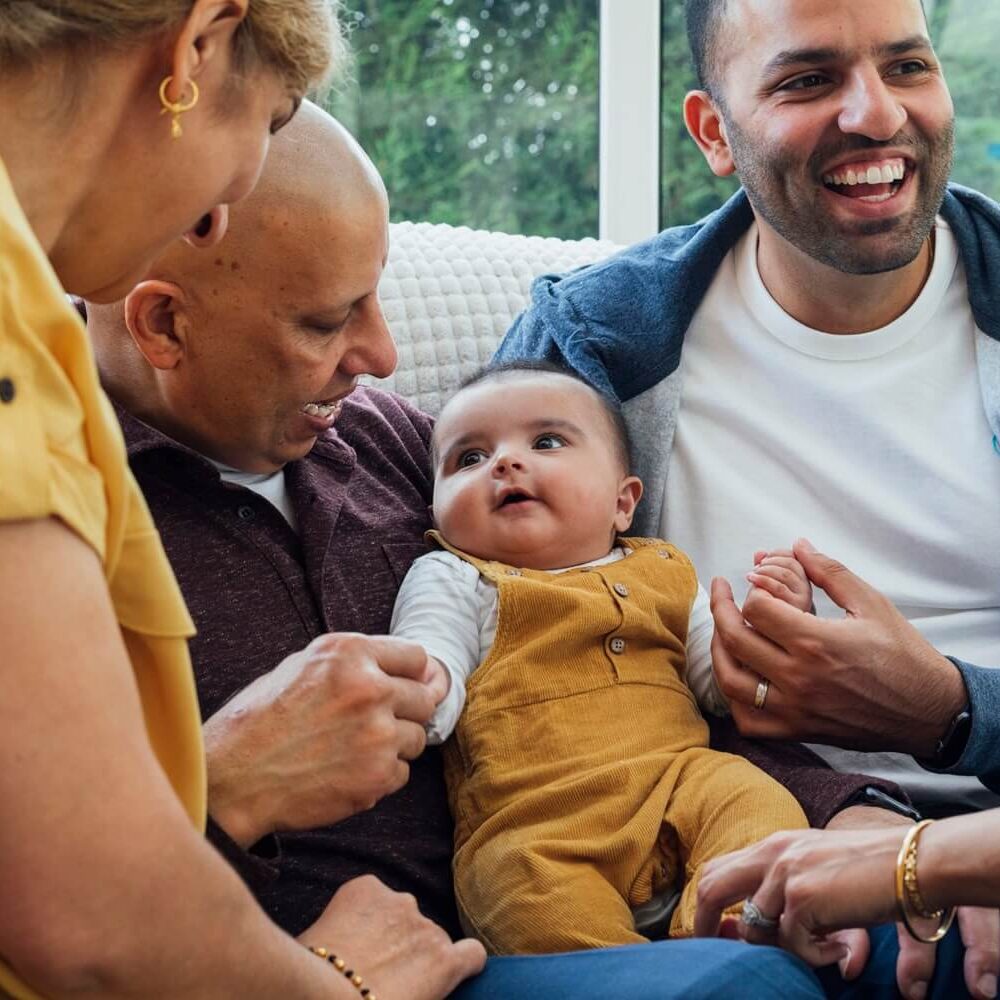
Rely on support where you can
We know that new parents don’t all have the same support networks available to them. Laura said, “Having practical and emotional support from your wider family makes all the difference – so if you have it nearby, consider yourself very lucky.” If there are people in your life who can help you – whether that’s a partner, family or friends – let them get involved and don’t be afraid to ask for help.
“You’re not going to be able to do everything,” said Karin, who has a 16-year-old daughter and 13-year-old son. “You want to control everything and ensure that your baby is safe, protected, and thriving. You will put your needs aside to be THE ONE but you cannot keep that up. Involve others, ask for help, accept help gratefully, and look after yourself. If you aren’t at your best, you can’t deliver your best as a parent.”
Laura said, “You may make some of your best adult friendships through your children and probably get to know your neighbours and community better through being a parent.” She also suggested making use of universal services and tapping into what midwives, nurseries, schools, libraries and children’s centres offer. The important thing is that you do what feels best for you and your child, and as Gosia pointed out, “You don’t need to attend baby groups – they’re not for everyone.”
Don’t underestimate the impact of sleep deprivation
One thing several parents agreed on was the fact that, if you’re regularly being woken throughout the night, tiredness can make it a lot harder to function and feel like you have everything together. One parent said, “I wish someone had talked to me about the impact of sleep deprivation. Our child didn’t sleep through the night until he was nearly two and a half. The impact on us was huge.”
Mark said, “Babies and young children can be very demanding at any time of the day or night.” He highlighted the importance of sharing child care with your partner or co-parent, if you have one, so each of you has time to catch up on sleep. “This is very important,” he added, “as lack of sleep can make every day challenges seem ten times worse.”
Sleep is everything. Prioritise sleep over housework.
But as we’ve already discussed, every parenting journey is different, and it isn’t a given that you’ll have disrupted sleep. Rhian, who has a three-year-old son explains: “Don’t take everything people tell you too seriously! I was very worried about sleep after having so many people tell me that it will be years before I get to have a good night sleep again, but it wasn’t like that at all. We all settled into a good routine really quickly.”
Use the time before your child arrives wisely
One adoptive parent of an older child advises not to put too much pressure on yourself to be perfectly prepared for your child’s arrival. “Your little person is not the sum of a report you’ve read, photos you’ve seen, or your own expectations. They are a full personality already. So, rather than buying all the stuff, or painting the room… I wish I’d spent my time clearing my head, my diary and my space so that we could get to know each other properly from day one without my expectations getting in the way. As it was, the little girl who we’d seen dressed up in photos holding dolls announced on her arrival that she never wanted to wear a dress, or play with a doll, ever again. Fine by me, I just wish I’d waited before buying her bedding, clothes and toys!”
Father of two, Chris, advises: “You don’t need to spend a fortune on new – there are more cost effective ways of being ready for children to arrive.” And if you’re preparing for the arrival of a baby, Wendy says: “You don’t have to buy all the gadgets – you probably won’t need or use half of them. Just get what you need to start off with and buy as you go along. I bought everything and more when I was pregnant, and it wasn’t necessary.”
Either way, consider what you can do before your child’s arrival that will make life easier later on. One example Wendy gave is to “cook batches of food and freeze them before your baby arrives. Those sleep-deprived days make it hard to want to cook.”
Before baby arrives, practise putting the car seat in, folding and opening the pram and [check] how any other baby equipment (such as bottle sterilisers) works.
Protect your relationship (if you’re in one)
Several parents pointed out that, if you’re in a relationship, it will change with a new addition to the family. “This is normal, so before having a baby, communicate about expectations, and keep this communication going as you become parents,” one parent said.
Try also to focus on the quality of your relationship with your partner. “It’s so easy to become completely consumed by the needs of the child and to forget the importance of nurturing your relationship with your partner.”
Another parent stressed that it’s important to “parent as a team when you’re a couple, not as individuals. Make sure you talk to each other about parenting and see parenting as a skill to keep learning about.” Making sure you’re on the same page with certain decisions will make it a lot easier to be consistent. But when there are blips along the way, “don’t talk about how your partner parents to other people – talk to them.”
Keep loving your partner after you become a parent. Don't transfer all of your love to your child.
Finally, try to enjoy the journey
For the final word in this article, we’re turning to a dad with older children. “I wish I knew how quickly every stage would be over as, given time, all the day-to-day worries relating to feeding, sleep, school and everything else fall away,” he said.
“As hard as it can be to imagine at the time, those sleepless, anxiety-ridden mornings holding your child in a sick-spattered dressing gown end up being among your most cherished memories. It’s hard to do, but if I could, I wish I’d been able to bear that long view in mind and enjoy the journey more.”
If you need any support on your journey to becoming a new parent, check our service finder to find Family Action services in your area. Or if you’d prefer to speak to someone on the phone, or via text, email or webchat, contact our helpline FamilyLine.
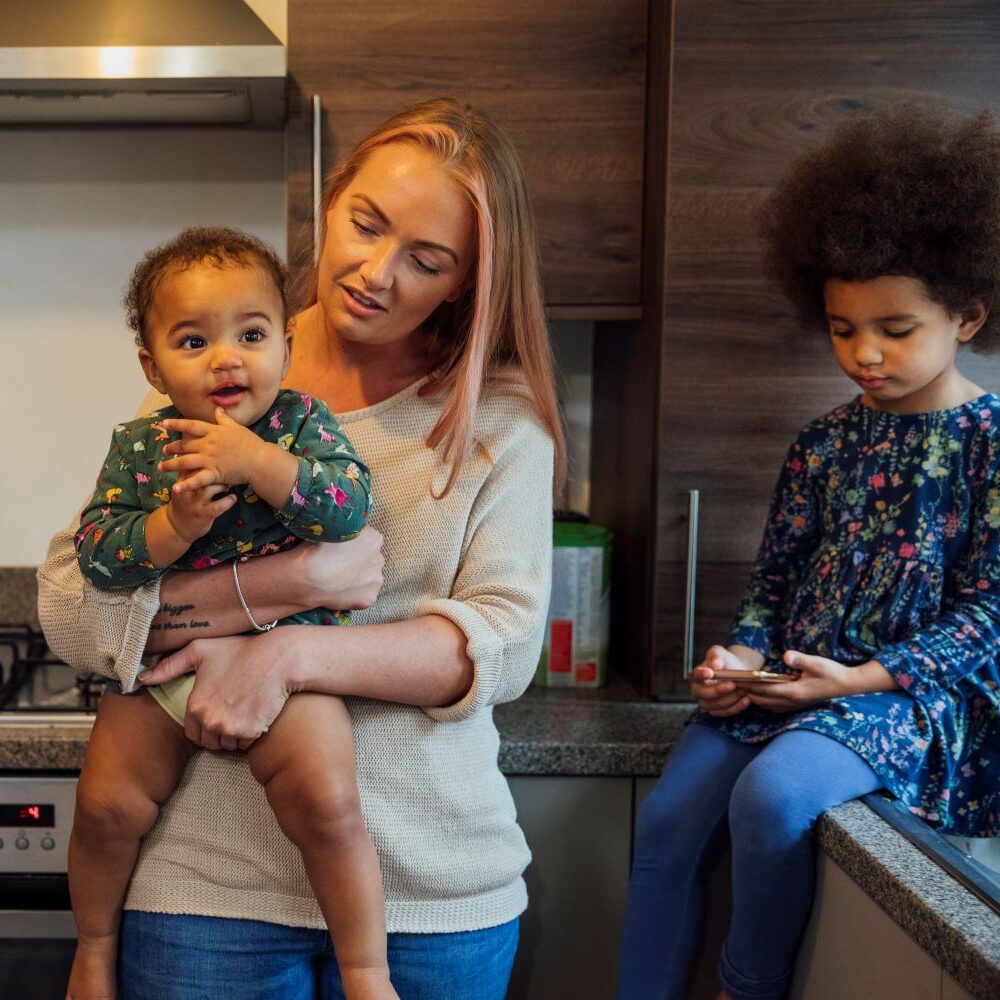
Call, text, email or web chat FamilyLine
If you’re feeling overwhelmed, worried or upset about any aspect of your family life, FamilyLine is here for you. We offer free emotional support and guidance on family relationships, conflict, parenting, caring, financial worries and more.
Contact FamilyLine


